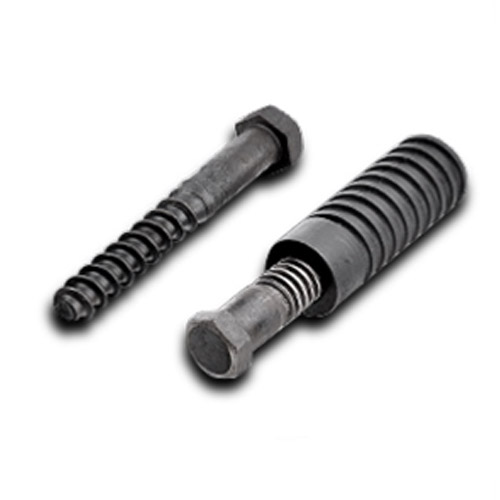

Inserting Self-Tapping Screws into Metal Surfaces for Secure Fastening Solutions
Aug . 18, 2024 13:13 Back to list
Inserting Self-Tapping Screws into Metal Surfaces for Secure Fastening Solutions
Understanding Self-Tapping Screws for Metal Applications
Self-tapping screws are essential fasteners used in various applications across multiple industries. Unlike regular screws that require a pre-drilled pilot hole, self-tapping screws are designed to create their own hole as they are driven into materials, making them particularly ideal for metalwork. This article explores the features, benefits, and applications of self-tapping screws in metal, as well as best practices for their use.
What Are Self-Tapping Screws?
Self-tapping screws are specialized screws with a sharp, pointed end that allows them to pierce through a range of materials, including metals, plastics, and wood. They come with various thread designs, head shapes, and materials to suit different tasks. The most common types for metal applications include thread-cutting screws and thread-forming screws. Thread-cutting screws remove material to create a precise threaded hole, while thread-forming screws displace material, allowing for a secure fit without cutting.
Advantages of Self-Tapping Screws in Metal
1. Time Efficiency The ability to drill and tap a hole simultaneously significantly reduces installation time. This makes them a preferred choice in commercial and industrial settings where time is a crucial factor.
2. Material Versatility Self-tapping screws are available in various materials, such as stainless steel, carbon steel, and zinc-plated options, making them suitable for different environments and applications, including those exposed to moisture and corrosion.
3. Cost-Effectiveness By eliminating the need for pre-drilling, these screws help save on labor costs while reducing the number of tools needed on site.
4. Secure Fastening When properly installed, self-tapping screws provide a strong and secure connection that can resist vibrations, making them ideal for automotive and construction applications.
Application Areas
Self-tapping screws find extensive use in several sectors
self tapping screw into metal

- Automotive Industry These screws are commonly employed in assembling metal components, securing panels, and even in under-the-hood applications. Their ability to provide a strong hold while saving time is invaluable in manufacturing.
- Construction In construction, self-tapping screws are often used to fasten metal sheeting, wall panels, and structural components. They are preferred for steel framing and roofing systems due to their reliability and strength.
- DIY Projects For hobbyists and DIY enthusiasts, self-tapping screws are an excellent choice for projects involving metal, as they simplify the assembly process without needing specialized tools.
Best Practices for Using Self-Tapping Screws in Metal
1. Choose the Right Type Different types of self-tapping screws are designed for specific materials. Ensure that the screw type aligns with the thickness and type of metal you are working with.
2. Use Proper Tools While self-tapping screws can be installed with a screwdriver, using a power drill with an appropriate torque setting helps ensure consistent and effective results.
3. Pre-Drilling Considerations In some cases, particularly with thicker metals, pre-drilling a pilot hole slightly smaller than the screw’s core diameter may improve installation and reduce the risk of metal deformation.
4. Install at the Correct Angle Make sure to drive the screw perpendicular to the surface for optimal performance and to avoid cross-threading.
Conclusion
Self-tapping screws are integral components in metalworking applications, providing efficiency, strength, and versatility. Understanding their types, advantages, and proper installation methods will enhance your projects, whether in an industrial setting or a DIY endeavor. By following best practices, users can leverage the benefits of self-tapping screws to achieve secure and durable results in their metal applications.
Latest news
-
Hot Dip Galvanized Bolts-About LongZe|High Strength, Corrosion Resistance
NewsJul.30,2025
-
High-Strength Hot Dip Galvanized Bolts - Hebei Longze | Corrosion Resistance, Customization
NewsJul.30,2025
-
Hot Dip Galvanized Bolts-Hebei Longze|Corrosion Resistance&High Strength
NewsJul.30,2025
-
High-Strength Hot-Dip Galvanized Bolts-Hebei Longze|Corrosion Resistance&High Strength
NewsJul.30,2025
-
Hot Dip Galvanized Bolts-Hebei Longze|Corrosion Resistance&High Strength
NewsJul.30,2025
-
Hot Dip Galvanized Bolts - Hebei Longze | Corrosion Resistance, High Strength
NewsJul.30,2025

